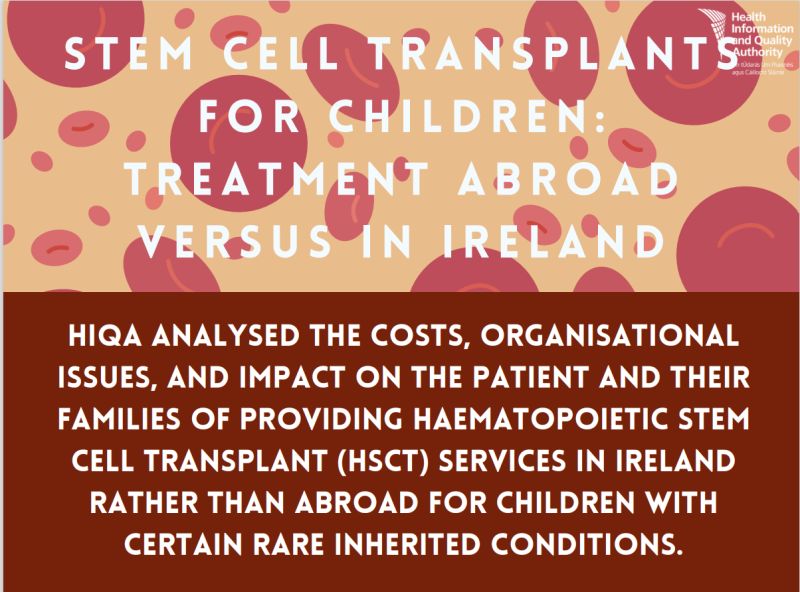
Introduction
The repatriation of paediatric stem cell transplants to Ireland stands as a promise for families affected by rare inherited conditions. This initiative promises to alleviate the emotional and financial strain of seeking treatment abroad, while potentially reducing healthcare expenditures.
Understanding Stem Cell Transplants
Stem cell transplants, particularly allogeneic haematopoietic stem cell transplants (HSCT), are life-saving procedures for children with rare conditions such as metabolic errors and haemoglobinopathies. Currently, these services are sought in the UK, under the HSE’s Treatment Abroad Scheme. However, the repatriation of these services could mean significant changes for patients and the healthcare system.
Analysing the Impact of Repatriating Paediatric Stem Cell Transplants
The Health Information and Quality Authority (HIQA) has published a health technology assessment (HTA) that could redefine paediatric care in Ireland. By potentially doubling the number of transplants conducted domestically, the move could streamline services and reduce costs. Yet, this shift hinges on the successful recruitment of skilled staff and an increase in available beds, particularly with the opening of the new National Children’s Hospital.
The Human Aspect of Healthcare
Beyond the numbers lies the human impact. Families currently face prolonged separations and the stress of foreign travel for treatment. Dr Máirín Ryan of HIQA emphasises the reduction in emotional and logistical burdens that repatriation could bring. Bringing treatment home resonates with the core values of patient-centred care.
The Financial Equation
Cost is a critical factor in healthcare decisions. While uncertainties remain, HIQA’s findings suggest that repatriating care could lead to cost reductions for the HSE. This factor cannot be overlooked, as it implies a more sustainable healthcare model for Ireland’s future. From the perspective of the HSE, while subject to substantial uncertainty, the estimated five-year incremental budget impact is expected to result in cost reductions. Over a five-year time horizon, depending on whether costs arising from ancillary procedures are excluded or included, the reduction is estimated as €2.3 million (95% CI -€5.8m to +€1.1m) or €1.5 million (95% CI -€5.0m to +€1.9m), respectively.
Conclusion
The repatriation of paediatric stem cell transplants represents more than a procedural shift; it signifies a commitment to enhancing the quality of life for families and children. It embodies a strategic move towards a more integrated and compassionate healthcare system in Ireland.
Reference url





